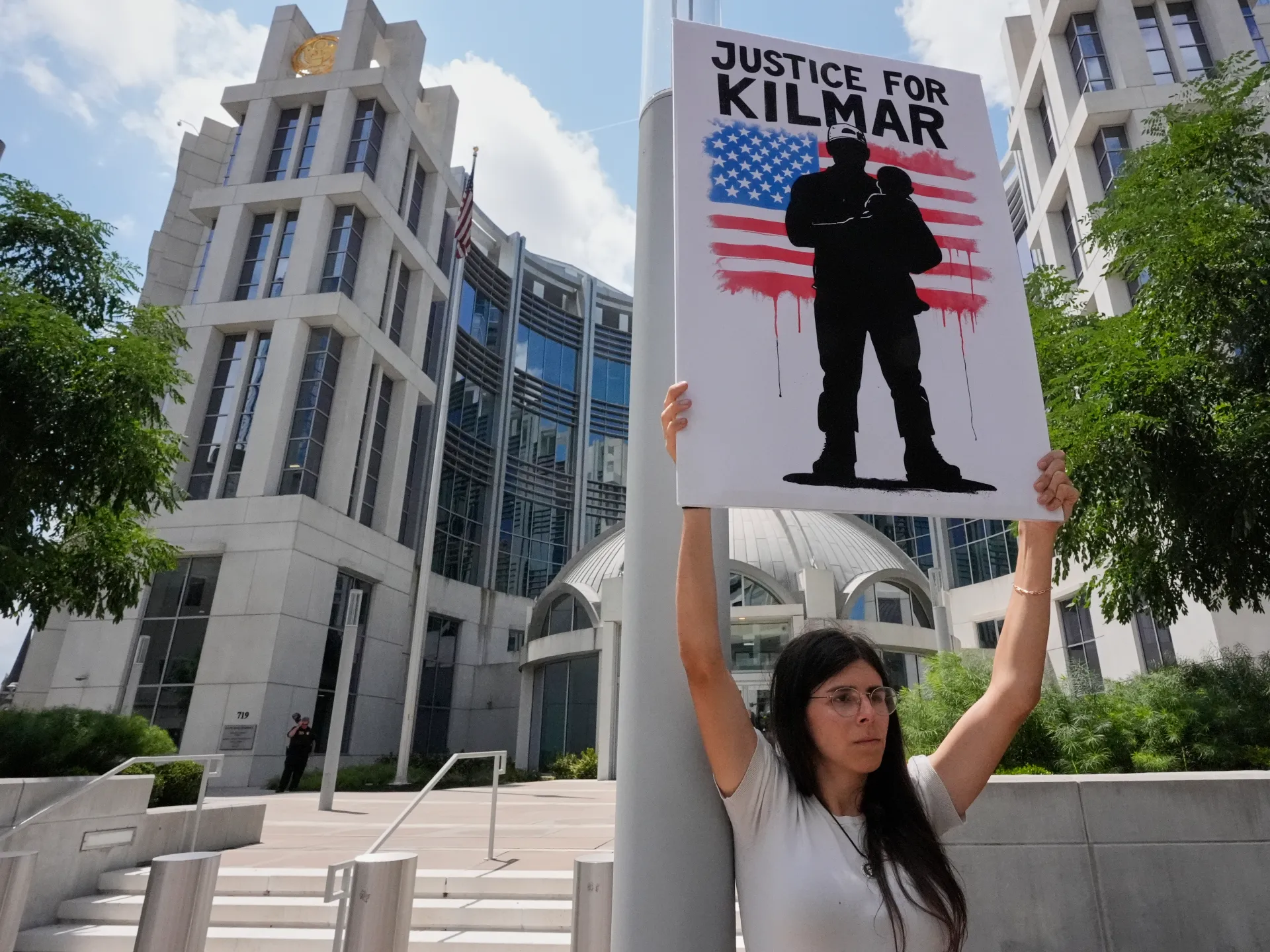US judge says wrongfully deported Kilmar Abrego Garcia can’t be re-detained | Courts News
Judge states Trump administration has made ‘one empty threat after another’ to deport Salvadoran national to Africa.
Published On 17 Feb 2026
A United States federal judge has ruled that the administration of US President Donald Trump cannot re-detain Kilmar Abrego Garcia, a Salvadoran national who was wrongfully deported last year and who the federal government has sought to deport again.
US District Judge Paula Xinis stated on Tuesday that a 90-day detention period had passed without the administration presenting a workable plan to deport Abrego Garcia, whose lawyers say he is being punished because his wrongful detention embarrassed the government.
Recommended Stories
list of 3 itemsend of list
Xinis said that the government “made one empty threat after another to remove him to countries in Africa with no real chance of success”.
“From this, the court easily concludes that there is no ‘good reason to believe’ removal is likely in the reasonably foreseeable future,” he added.
The ruling is a victory for Abrego Garcia, who has been fighting his attempted deportation by US immigration authorities who have tried to send him to African nations such as Uganda, Eswatini, Ghana, and Liberia. Abrego Garcia was released from an immigration detention facility in December.
His wrongful deportation to El Salvador, where he was held in a prison known for poor conditions and widespread abuse, became an early flashpoint in the Trump administration’s push to deport non-citizens from the US, often with few efforts to abide by due process requirements. The Trump administration had also accused Abrego Garcia of being a member of the criminal group MS-13, without offering any evidence.
His mistaken deportation prompted widespread anger and calls for the Trump administration to bring him back to the US. After initially stating that it had no authority to do so, the Trump administration brought Abrego Garcia back to the US in June following a court order mandating his return. It has since charged him with human smuggling, an allegation that he denies.
